Sandra Lee’s latest feat after cancer and heartbreak: ‘Blue Ribbon Baking Championship’
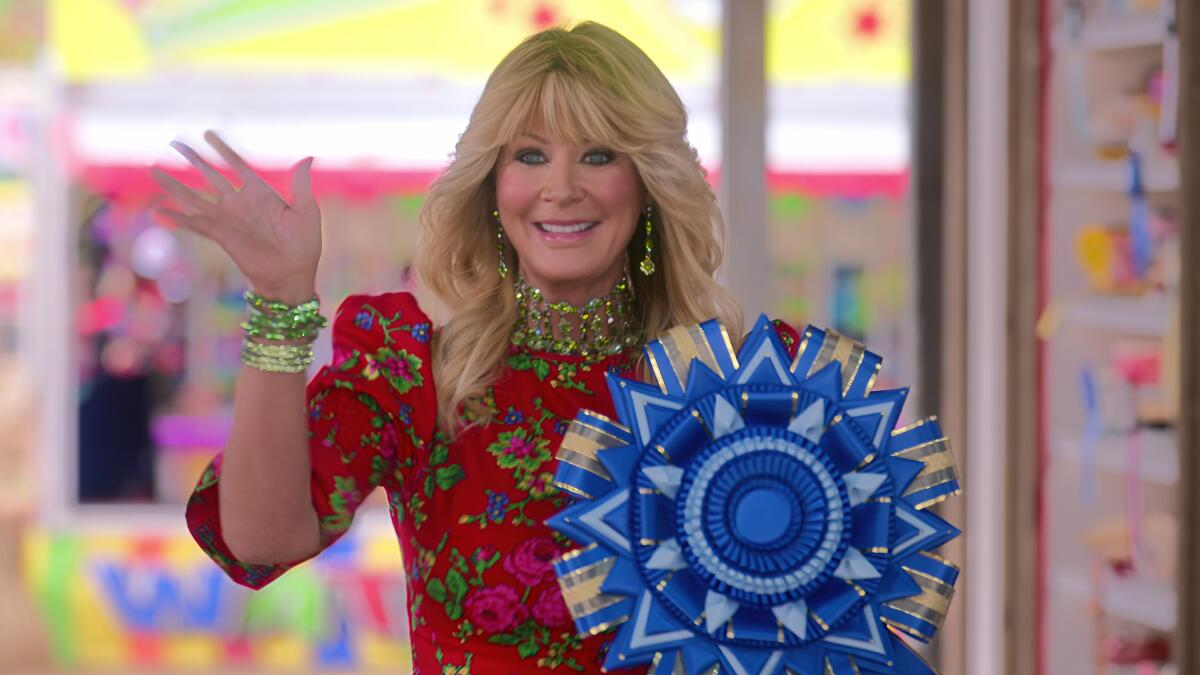
- Share via
When Sandra Lee won a blue ribbon at the Los Angeles County Fair, her sister called to tell her the good news.
“It was surreal,” the TV chef says of her 1992 victory. “I’m not sure I was much older than 25, but I was just surprised because I had just sold my car to pay for the booth and I was right in the midst of trying to pay off student loans.”
At the time, the Santa Monica-born entrepreneur was under pressure and “trying to survive.” It was a mode she knew all too well. As a young girl, she raised her four younger siblings while her mother, an addict, stayed in bed — something she detailed in her memoir, “Made From Scratch.” Lee managed the household and bought groceries with food stamps. She worked with what she had to feed the family, transforming cans of soup into tasty casseroles. After dropping out of the University of Wisconsin-La Crosse, she moved to Malibu and started a company called Kurtain Kraft, which created a product that used wire hangers and fabric to create window drapery. By 1993, Lee’s ingenuity had paid off with a QVC deal and infomercials.
Ten years later, she made her Food Network debut as the host of “Semi-Homemade Cooking,” where she whipped up recipes using mostly store-bought ingredients. The Emmy-winning show spawned Lee’s lifestyle empire, 26 cookbooks and a print magazine — and the series ran for 15 seasons, until she was diagnosed with breast cancer in 2015. She underwent a double mastectomy and announced that she was cancer-free later that year. In 2022, she had a full hysterectomy to prevent further illness.
These days, she’s staging her TV comeback. She hosts “Dinner Budget Showdown” on Roku, and on Friday, she’ll make her Netflix debut in “Blue Ribbon Baking Championship,” which takes “The Great British Bake Off” model and applies it to the cutthroat yet cozy world of American state and county fairs. Ten bakers from across the country compete for $100,000 and a spectacular blue ribbon; they include a Long Island farmer, a retired New Mexico pulmonologist and an Iowa mom who’s collected hundreds of blue ribbons.
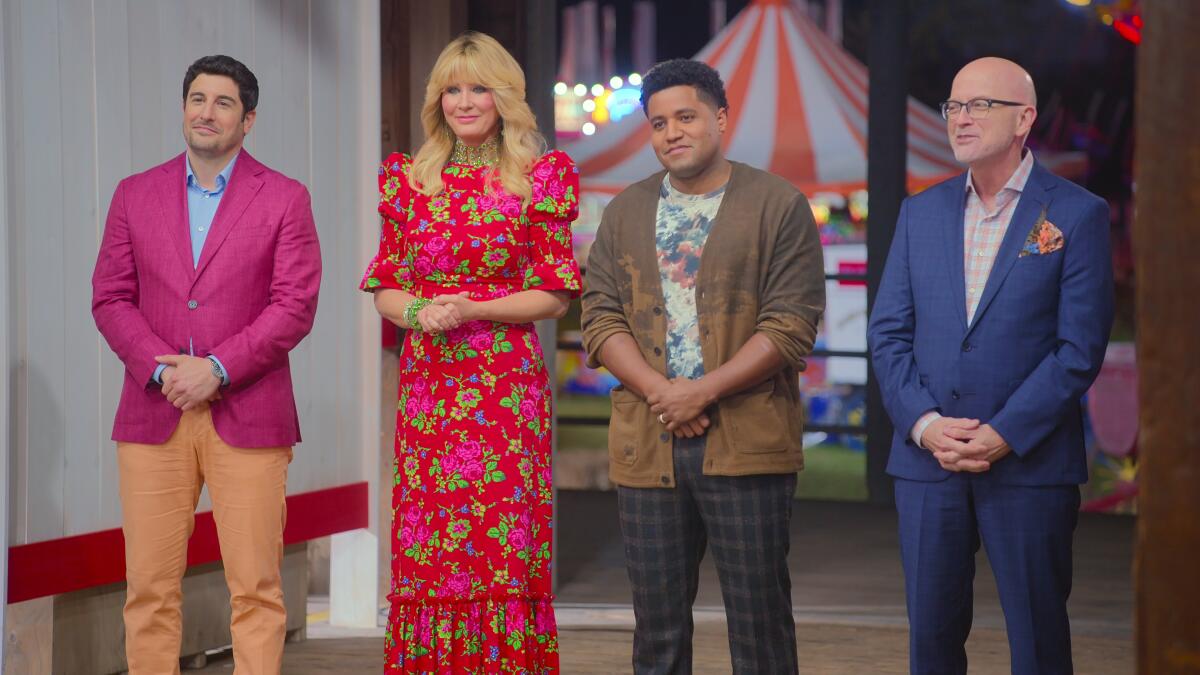
Lee is “Queen of the Fair” on the show, serving as co-host with actor Jason Biggs, a judge — alongside former White House pastry chef Bill Yosses and artisan bread baker Bryan Ford — and executive producer. As a judge, Lee conveys a mixture of warmth and toughness — qualities that spill over into our conversation. The Times spoke with Lee, who talked about this new chapter in her life, why chefs shouldn’t be elitist and how she found love again with Ben Youcef, an actor 13 years her junior, after her split with Andrew Cuomo, the former governor of New York.
You got the idea for “Blue Ribbon Baking Championship” more than a decade ago. What inspired you?
At the time, “The Great British Bake Off” was just launching. I’m very proud of America and what we do here. I looked at that [BBC series] and I thought, “Wait a minute.” We have state fairs and blue ribbons, which are the gold standard in all of baking and all of cooking. And our state fairs have been here before our country was a nation. In fact, the [York Fair in Pennsylvania] was founded in 1765, which is 11 years before 1776. Baking competitions have been around that long. If you think of the blue ribbon — I mean, there’s nothing … higher than a blue ribbon.
I won’t spoil anything here, but I was awed by the contestants’ pastry prowess. A few could seriously go up against a Michelin chef.
And they’re more competitive.
The first big challenge in Episode 1 — in which they had to improvise food on a stick — seemed to throw the group for a loop.
These bakers are great at what they do, and some are great at pies and at bars and cakes, but in the very first competition, we literally leveled the playing field and brought everyone down to their knees. There was no ego after that.
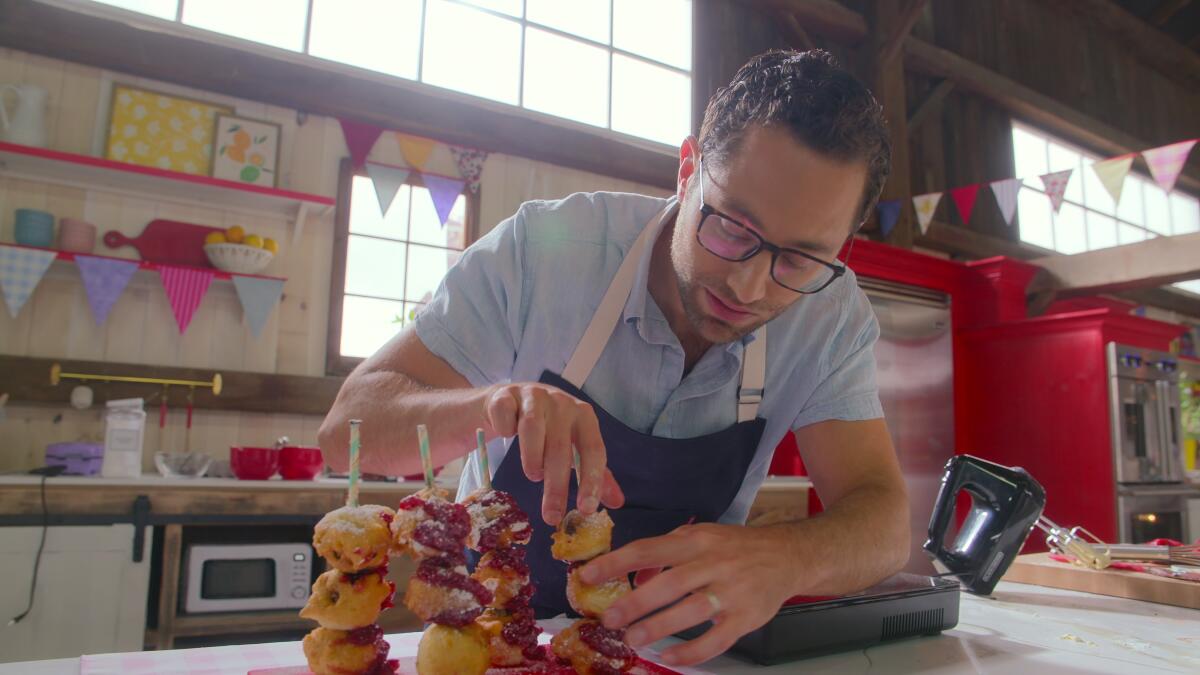
It’s hard to keep that food on that stick.
You have a very small opportunity to display visually, and you have a very small opportunity to get your flavor into whatever it is. Then you have to create something miniature, and you have no time to do it. … It’s compelling television, and the reason why is [because] everything takes place in real time. There’s no stop-downs, there’s no naps and there’s no breaks. They are baking in real time. And that is different from any other show like this.
My pulse quickened just hearing you say that. What made you want to keep the process so authentic?
Because it’s real. I mean, when you see meltdowns and people catching stuff on fire and bowls breaking and people upset, and even though they were helping each other, the pressure is what the pressure is and it’s $100,000. You have to earn it. I mean, you have to be the best of the best. And unless you have that pressure, how would we ever know?
You have this nice balance as a judge — tough but fair. How do you pull off that tricky dance of expressing compassion for fellow chefs while also having to be honest with them?
Well, I actually know Simon Cowell, and I used him as my benchmark. First of all, when I think about it, I like the stories and I like the packages of the personalities [on the show] so that we understand who they are and what their point of view is. And, of course, their talent is really important. But then you have that heartstring and that heartstring comes to life not only within their interactions but also within what they serve you. If you looked at Kim [Thompson], [she] was always talking about her son and what he loved. If you looked at Cat [Cheng], she was talking about her pet and her husband, and Ron [Bronitsky] was just happy to be in the room. And Larry [Kaiser] made those [potato] bars that blew everybody away.
So for me, I wanted to be thoughtful. I wanted to give advice, and I wanted to be direct. I think they expect me to come in and just be a softie. But in order to create something like “Semi-Homemade,” you have to have a real palette. You can’t just go to the grocery store and throw stuff together in a box. What’s the depth of flavor? How do you add, how do you subtract, how do you balance those types of things? … I can taste mashed potatoes and tell you if it’s black pepper or white pepper they put in there. My talent is really honed for flavor.
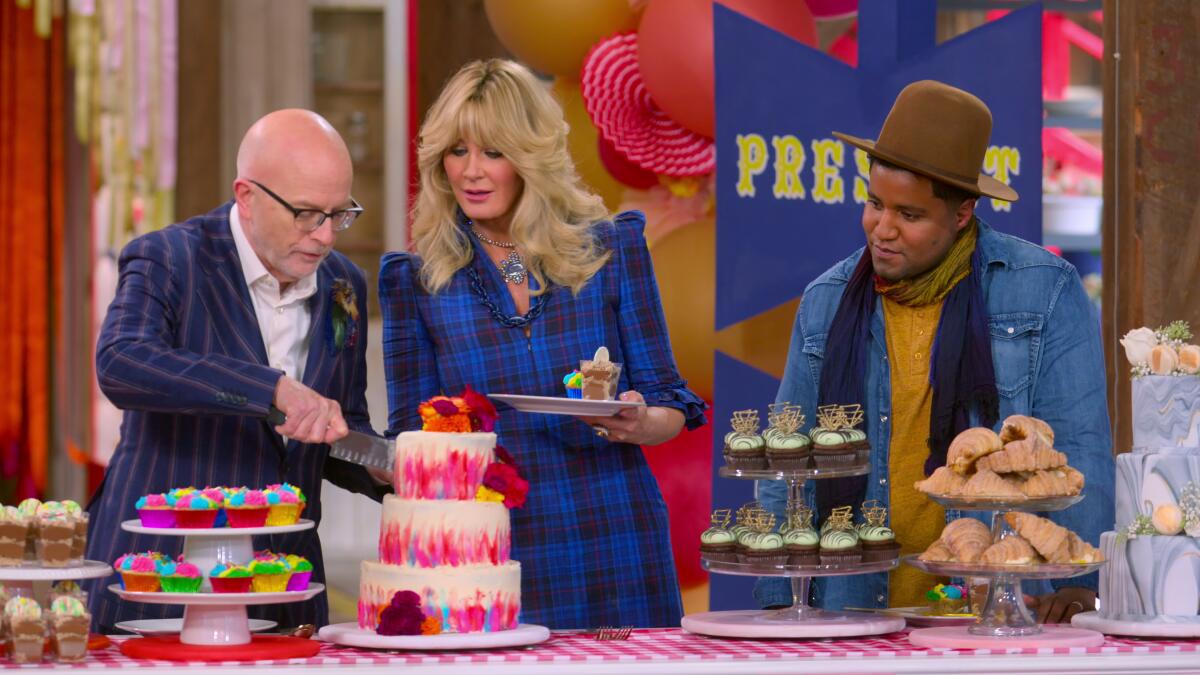
You’ve accumulated quite the team around you: Bill Yosses and Bryan Ford, who dances when he loves a dessert. Oh, and your co-host Jason Biggs. What do they bring to the table, so to speak?
[Bill is] really the technical guy. He really observes what they’re doing technically, how they’re incorporating those techniques into what they’re doing. I’m visual [and focused on] display. I want to see not only what the flavors are and the depth of flavor within the dessert and also the consistency but I want to see the visuals of it all. Then Bryan, of course, is just like the master at the actual base. Because he’s a bread baker, he’s looking at the sponginess of the cake, he’s looking at the moisture. He’s looking at very specific things that we’re not looking at. We all have our tent poles. And then Jason is just eating. He doesn’t have a fight in the game. He doesn’t have any opinion. He’s just eating.
Switching gears, tell me about the decision to shelve “Semi-Homemade Cooking” and pull back from the public eye.
What I tried to do in the first [“Blue Ribbon”] competition is level the playing field. I think sometimes in life you’re just handed a situation that levels you. In 2015, when I was diagnosed [with cancer], it was a leveling moment for me within [“Semi-Homemade”], within my career when it came to maturing and aging, when it came to my personal life. I really took a beat and then my uncle got sick and I had to be in California a lot. Then my breakup [with Cuomo] happened, which was a huge thing. Then COVID happened, which was a huge thing. And then my uncle passed away, which was a huge thing. Right after that, I went right back to work and [“Blue Ribbon”] was picked up … even though I had pitched it several times before and was told that it would never work. But they said “Semi-Homemade” wouldn’t work either.
You cornered a niche with that series. Now, on TikTok, I see tons of home cooks taking your cue and crafting unfussy meals out of packaged products. Does this trend offer some validation after your style drew ridicule within the culinary establishment?
I’m glad that the chefs and the cooks that came before me have figured out — although it took a while — what really resonates and what can be helpful. Our job is to serve. Our job is not to dictate, and it’s not to be an elitist. Our job is to facilitate, insulate support and lift up. You are the only person to ask me that question. The only person getting this answer: Our job is not to judge, look down our nose, talk about “unsophisticated” and how — that’s such baloney. Not that I’m telling you to eat bologna. I’m not. I’m absolutely not. But what I am saying is that we have a very specific platform and we have a very specific responsibility. Some people need to remember that who we serve is between Manhattan and Los Angeles. That’s who we are responsible to make happy and to make successful.
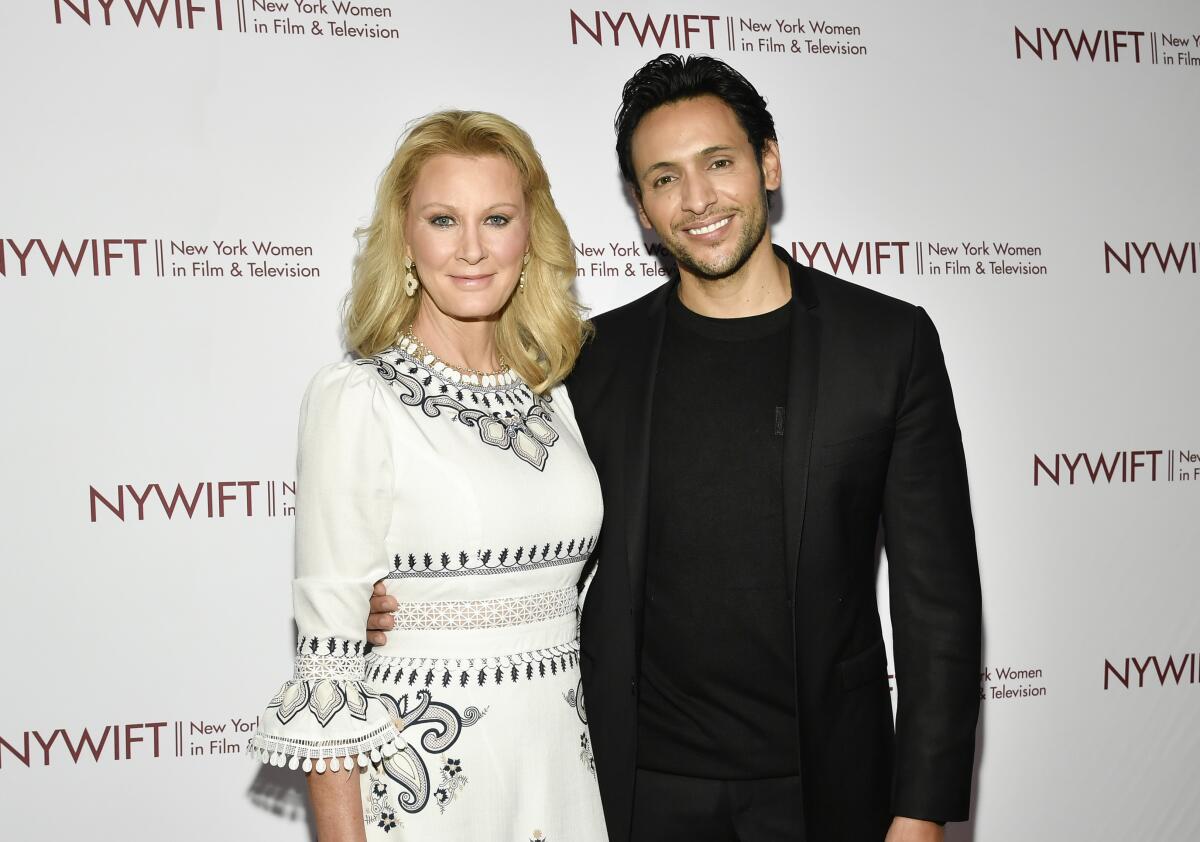
You shared your health struggles in the HBO documentary “Rx: Early Detection, A Cancer Journey With Sandra Lee” and have advocated for affordable breast cancer screenings. How do you feel now?
I feel good. I mean, I work every day at trying to not think about it. I don’t know if anybody who’s ever heard that word doesn’t think about it daily. But I do my best, and every day is a new day. That’s where I’m at right now. One more year — I’ll be 10 years out, so we’ll not talk about it until next year.
How did you meet your boyfriend Ben? You two seem to have a loving partnership.
He’s very connected and he’s very sweet and always, always available. How did we meet? I was in a restaurant with a friend and I saw him, but I hadn’t had a date or even thought about having a date in two years. I don’t go on any [dating] sites and I don’t really sit down and date. It’s kind of hard for me anyway because how can I really sit down and say, “Hey, how are you doing?” I don’t think that works for me. They’re not going to cook for me, for sure. If they take me somewhere, they’re going to be stressed about the restaurant. And what’s beautiful about Ben is he had no idea who I was. When I left the restaurant, [he] knocked on the door of my car and said, “I want to take you for a walk. I think you’re beautiful. Can I have your number?” And I said, “No, no. What you talking about?” And he just persisted. It was meant to be.
More to Read
The complete guide to home viewing
Get Screen Gab for everything about the TV shows and streaming movies everyone’s talking about.
You may occasionally receive promotional content from the Los Angeles Times.






